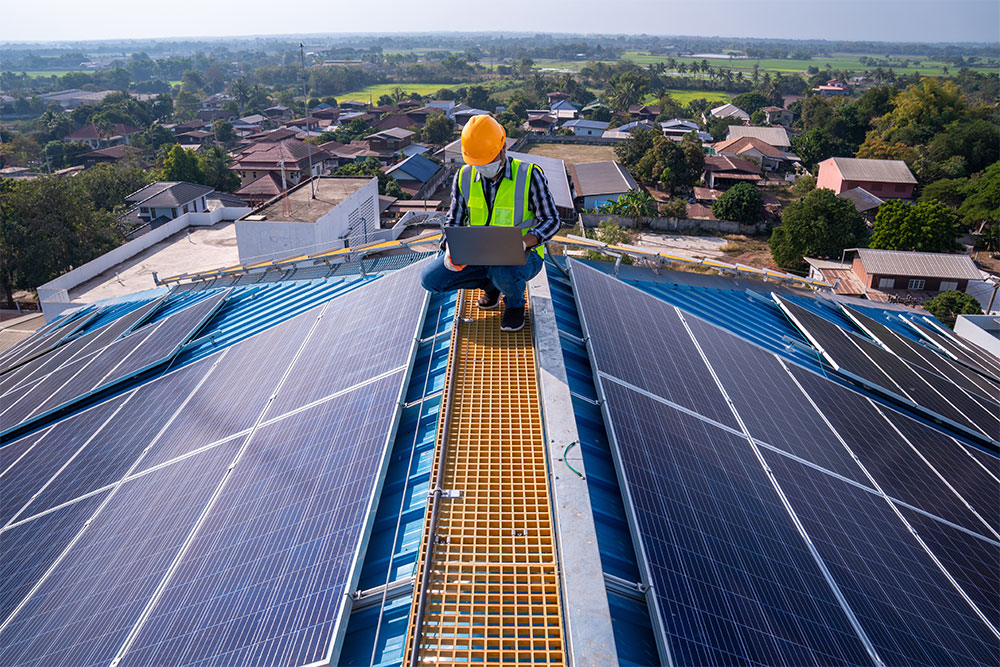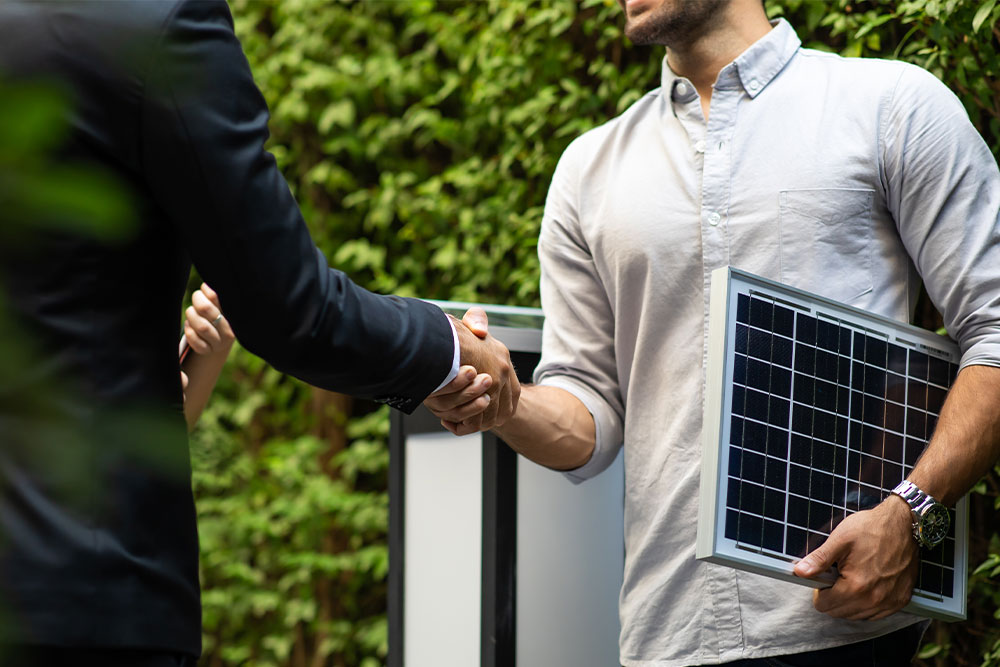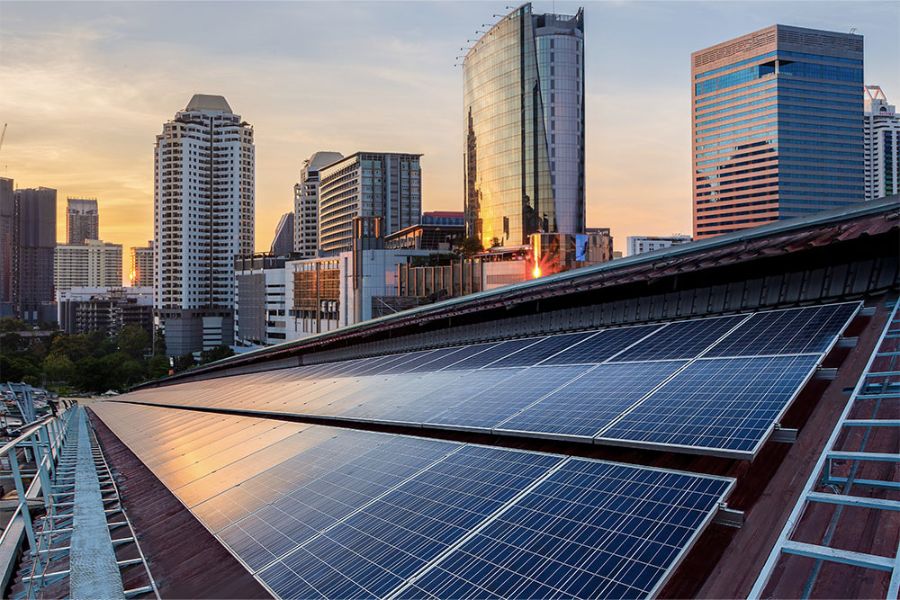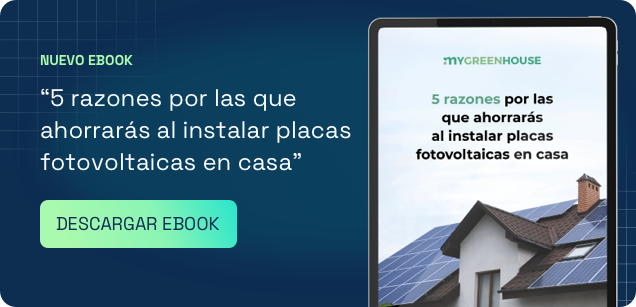What do you need in order to install solar panels on buildings? This is one of the questions that more and more people are asking themselves when thinking about self-consumption.
However, it isn’t always enough simply deciding to do it, or having the money to do it. In fact, in order to install solar panels, you need to meet certain requirements to ensure that the project is viable and profitable.
These requirements relate to the structure of the building, and also to applying for certain legal permits.
Requirements for the installation of solar panels on buildings: roof condition and orientation

Before installing photovoltaic panels, specialised companies such as MyGreenHouse will carry out a personalised study to calculate the area required for the installation, and to verify that the area where they are going to be installed offers all the necessary safety guarantees.
In this sense, one of the main requirements for the installation of solar panels on buildings is that the roof must be in good condition.
Of course, it is quite true that the solar panels are not mounted directly on the roof tiles – they are fixed to the structure of the house using support brackets. Even so, a good roof covering (whether made with tiles, roofing felt, or other insulation) is essential in order to prevent leaks.
A roof in poor condition poses a risk of leaks and a potential collapse, especially if we take into account that it will have to support the weight of the supports, the solar panels themselves, and elements such as snow, rain and wind.
This is one of the main reasons why, before installing a PV system, you should check to see if your roof is in poor condition, and then make the necessary repairs.
By doing so, not only will you reduce the risk of possible accidents when installing the solar panels, but you’ll also avoid having to renovate or renew the roof in a few years time, which would mean having to dismantle and reassemble the entire installation.
Along the same lines, and especially in older buildings, before installing solar panels it’s advisable to check that the roof doesn’t contain asbestos, a material that has been banned in Spain since 2002.
In addition to checking the overall condition of the roof, the installation of solar panels on buildings also involves choosing the best location for the installation.
Of course, in this whole renewal process you would prioritize the areas that receive the most sun and hardly any shade, as these are the areas where you will place the solar panels.
Another consideration for the installation of solar panels is the orientation of the roof.
As we have already explained in our blog, photovoltaic technology needs solar radiation to operate, and the more hours of sunshine an installation receives per year, the more energy it will produce and the more profitable it will be.
As our country is located in the northern hemisphere, in order for our panels to receive more radiation we need to orientate them towards the south.
However, this is not always possible, and in some cases we will have to look for other options, and direct the solar panels towards the east or west. If your energy consumption is mainly in the morning, then east-facing panels are the best option; if you use more in the evening, then opt for west-facing.
Procedures for implementing a photovoltaic installation

The installation of solar panels falls within the construction sector, so you must request a building permit in order to carry out the installation.
Furthermore, in the case of communal, or shared, areas such as terraces or roofs, etc., 95% of all owners would need to approve it, whereas, in the case of some sort of small building on the upper terrace of your property, this wouldn’t be required.
It’s also vital for the building you’re installing the panels on to be properly legalised.
When applying for planning permission, you should also consider the type of land (rural or urban) and the area (historical, natural, etc.). This is relevant because, for example, installations of less than 15 kW only need this type of authorisation if they’re on rural land.
Another necessary administrative procedure for installing solar panels on buildings is to apply for grid access or connection.
Since photovoltaic installations are electrical generating systems, the entire electrical installation implemented in the building must be registered and legalised, which implies following the current electrical regulations in terms of low voltage and self-consumption.
In addition, the relevant government body will verify that all the installation’s equipment (panels, accumulators, wiring, etc.) is compatible and certified for use in Spain.
With regard to the permits and procedures you need in order to legalise your photovoltaic installation, they are as follows:
- Installation certification.
- Operating authorisation.
- Registration in self-consumption registers.
- Initial inspection.
- Registration with RAIPRE (Administrative Register of Energy Producing Installations). This registration is only necessary when the installation produces surpluses of energy that you plan to sell.
Do you have any other questions about the requirements for installing solar panels on your building?
At MyGreenHouse, photovoltaic experts will be happy to answer any of your questions and offer you the best advice you can get. Why don’t you call us?


